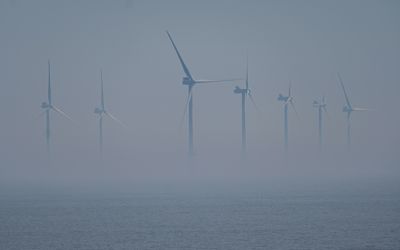Oil rigs could be a lifeline to struggling coral, study suggests
Industrial structures, such as oil & gas platforms, could play a key role in helping ailing colonies of coral.

Industrial structures, such as oil & gas platforms, could play a key role in helping ailing colonies of coral, new research has highlighted.
A group of scientists from Edinburgh University came to the conclusion after detailed analysis and modelling on the benefits of such man-made structures.
The team’s computer model revealed that coral larvae near shipwrecks or oil platforms would help them reach other naturally occurring coral over great distances.
This ability could bolster existing populations leading to the recolonization of damaged reefs.
The article was published in the journal Scientific Reports.
Professor Murray Roberts said: “When we first spotted these corals growing on the legs of oil platforms in the late 1990s it was a real surprise, as we expected this to be a very unsuitable environment for them. We now have strong evidence that they’re likely to be dispersing right across the North Sea and into marine protected areas.”
Dr Lea-Anne Henry at the School of GeoSciences, added: “We need to think very carefully about the best strategies to remove these platforms, bearing in mind the key role they may now play in the North Sea ecosystem.”
Many coral reefs are facing unprecedented risks from increased ocean temperatures, human development and invasive species. Warming oceans have led to a 34 per cent increase in highly damaging marine heatwaves over the last century.
A poll of 38 leading scientists last month suggested that former oil rigs could have environmental benefits. The experts agreed that decommissioning oil rigs on a case-by-case basis could benefit marine life.
The issue has been criticised as allowing oil & gas companies to avoid its responsibilities to safely remove the costly and complicated structures.
Doug Parr, Greenpeace UK’s chief scientist, recently told the BBC that "a raft of plastic bottles accumulates marine life, but no-one is arguing we should create more.”





_400_250_80_s_c1.jpg)
